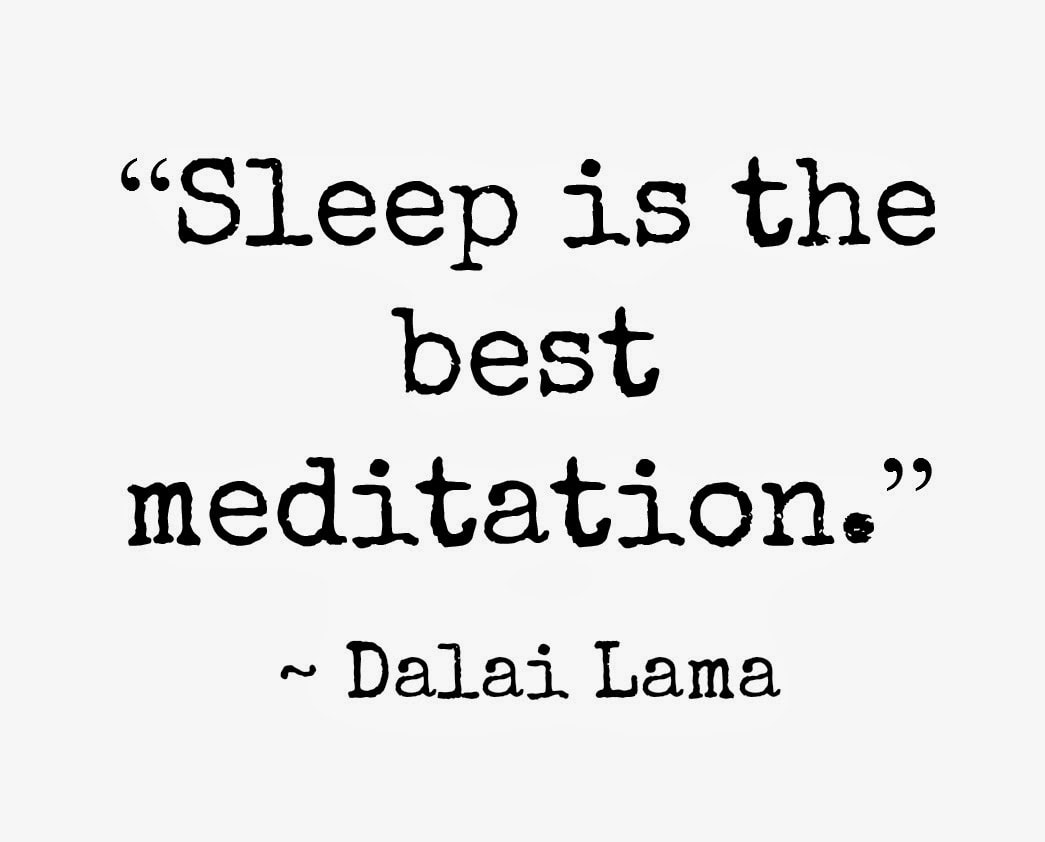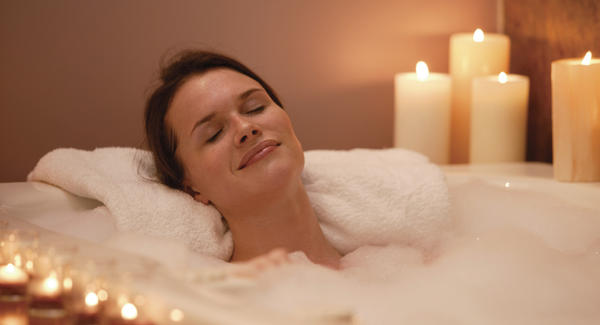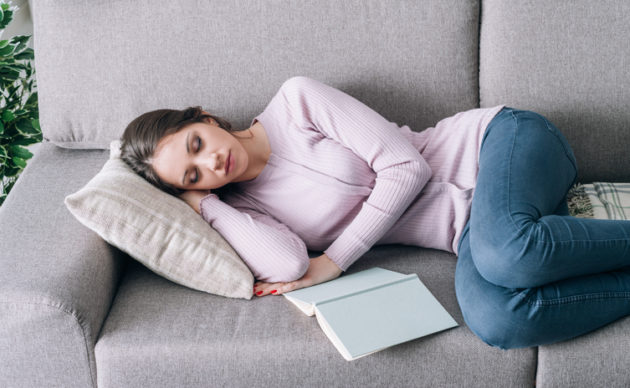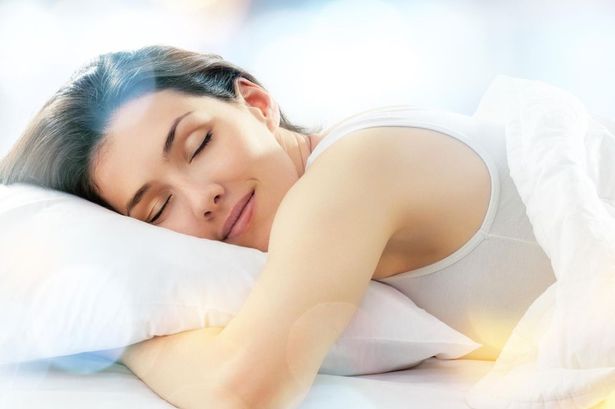Sleep is an enigma which many of us have a complicated relationship, but when you’re making your journey through peri- and menopause, sleeping through the night may seem like an impossible dream.
Hot flashes leave many menopausal women tossing and turning or waking drenched in sweat. This, coupled with not being able to switch your mind off, or the impacts of late night sleep-depriving choices – watching that box set extra episode, flicking through our social media feeds or answering one last work email – can all have a huge impact on your well-being.
Not sleeping can cause you to feel irritable, anxious, fatigued and can mean you suffer from a lack of motivation. You are more likely to feel overwhelmed too and struggle to maintain a healthy weight. Sleep deprivation can also mean slower reaction times compared to when you are well rested and lack of sleep also has an ageing impact on the brain and skin.
When paired with the everyday stresses of life, it’s a wonder anyone manages to get through the day!
So why is sleep so important? The answer is multifaceted but also very straightforward – your body restores itself while you snooze. Muscle growth and tissue/cell repair, as well as a re-balancing of your neurotransmitters, are all happening while you’re unconscious.
During the day, neurons are firing and your brain is very active, which produces a neurotransmitter called adenosine. This leads to a decrease in dopamine, which is the neurotransmitter that keeps you feeling fresh and awake. As adenosine builds up, dopamine decreases, which is what causes you to feel sleepy in the evening. As you sleep, that process is reversed so that you wake up feeling perky and ready for the day.
Sleep well and you will feel calmer and be more energised. Sleep enables your body to heal itself and it can also help …
- Regulate your hormones
- Boost your immunity
- Reduce your blood pressure
- Lower stress
- Improve your mood and emotional stability
- Shrink your waistline
- Improve your memory
- Improve your capacity for focus and productivity
- Spur creativity

12 TIPS & IDEAS FOR A GOOD NIGHT’S SLEEP
Identifying the reason sleep is escaping you is never straightforward, and issues can range from hormonal changes, joint pain, anxiety or even incontinence (it’s happened to all of us – you need to get up in the middle of the night for a wee then can’t get back to sleep afterwards!).
However, finding a solution, a bedtime routine that works for you, is important as the power of restorative sleep can never be underestimated. Try these lifestyle changes and smart sleep strategies to create a bedtime routine that helps you rest easy.
- Create a ‘sleep schedule’ for yourself where you go through the same routine every night at the same time e.g. brush teeth, change into pyjamas, read a book… eventually your body will learn that it means it’s time to go to sleep.
- Implement a tech curfew. The lights radiating from our smartphones, computer screens and TVs have been found to disrupt the production of melatonin, the sleep-inducing hormone. Turn off devices and TVs at least one hour before you plan to go to sleep.

- Take a relaxing bath. A night-time bath is the perfect opportunity to enjoy a moment of calm. Light a candle or two and watch them flicker as you release the stresses of your day. Breathe in the aromatherapy-scent of your bubble bath and bring your attention to each part of your body as you gently sink into the warmth. Close your eyes and take a deep breath.
- Keep cool at night. The optimum temperature for a good night’s sleep is 18 degrees Celsius. If you are too hot you are more likely to feel restless. If you suffer from hot flashes and night sweats you may also want to try sleeping with your window open, reducing the tog of your duvet or layering lighter bedding.
- Limit caffeine. This seems like an obvious one but you may not know that caffeine not only interferes with sleep, it can also cause hot flushes! So do away with that night-time cup of tea in front of the TV.
- Limit alcohol as it prevents you from falling into REM sleep, which is where your best beauty sleep happens.

- Have a ‘sleepy’ drink. Warm milk can make you feel sleepy as it contains tryptophan which stimulates the production of serotonin, the mood-boosting neurotransmitter associated with feelings of calm and relaxation. Alternatively, you can opt for a ‘sleepy’ herbal infusion blend such as valerian root, passion flower, lavender or chamomile.
- Keep a notepad or journal by your bed. Log whatever is keeping you awake, and then you can allow that thought to pass and go to sleep in the knowledge that you will remember it in the morning.
- Don’t lie there worrying about not being able to sleep! After 20mins, get up and take yourself off to a different room and do something relaxing. Avoid watching TV as the blue light won’t help! When you feel sleepy again, head back to bed.
- Listen to a pre-sleep relaxation meditation or mindfulness podcast. These can be a great way to relax yourself and switch off your overactive mind. At Menogo we like those offered by the free app ‘Insight Timer’ but there are many out there to choose from. Top tip: listen to them during the day (or at least a little bit) to ensure you find the person’s voice or the music they have chosen soothing. There’s nothing worse than trying to get to sleep to a voice or tune you find irritating!
- Make your bedroom a haven for sleep. Keep your room work papers and clutter-free as both can trigger a stress response. If the early-morning light during summer wakes you, invest in some blackout curtains. Try ear plugs if you are disturbed by noises. And if you suffer from the winter blues or prefer to wake up in a more tranquil way, try a SAD lamp, which you can set to wake you up gently.

- Daily exercise can also help regulate your hormone levels and give you a better night’s sleep – although try not to do any strenuous exercise just before bed as this can stimulate you and keep you awake for longer! Try some gentle stretches before bed – they will help to relax your body, release some of the tension of the day and set you up for a good night’s sleep.
And finally … a few sleep myths busted
How much is enough? According to a study published by the ‘Journal of Sleep’ in 2014, as a general rule (teenagers excluded!), seven to seven and a half hours sleep each night is a good benchmark … rather than the more commonly perceived eight hours.
The Weekend Lie-in It also revealed that if you are a lover of the weekend lie-in, believing you can catch up on your deficit from the working week, you may be doing yourself more harm than good. In short, your body can handle an extra hour of sleep on the weekend, but anything more and it will mess up your ‘body clock’ and make it harder to get to sleep on a Sunday evening, leaving you feeling sleepy on Monday morning.

Power Naps On the flip-side, a 20-30 mins power nap in the afternoon was found to be very beneficial in boosting mood and alertness … but any longer and you risk sleep inertia, the groggy feeling you experience when you are woken from the deep part of your sleep cycle.
Whatever your age or life stage, making sleep a non-negotiable part of your day, of your self-care routine, can only enhance your well-being* – emotionally, physically and mentally. Create a bedtime routine that works for you and increase your chances of waking up feeling refreshed and raring to go!
*If menopause symptoms continually keep you up at night, make an appointment to see your doctor.


